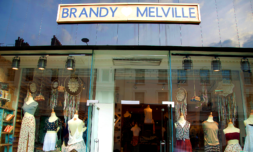With transparency an urgent new focus for the industry, blockchain technology is being used by brands to lift the lid on false claims and ultimately change the way we shop.
If you don’t know what blockchain is, it’s an incorruptible system of recording information that makes it near-impossible to change, hack, or cheat what’s been inputted.
Amid growing scrutiny that the beauty industry isn’t nearly as transparent as it should be, it’s coming in very handy for brands striving to boost consumer confidence.
In a recent study, 37% of the Gen Zers – which have a combined spending power of over $140bn – specified knowing exactly where their products come from and how they were made as the most important factor when buying.
That’s in addition to the whopping 60% of all beauty consumers who want to know more about the sourcing of ingredients.

‘The younger generation are hyper-conscious about what they want to buy, and they will boycott with their wallet if they don’t agree with what a brand is doing,’ says founder of EM Cosmetics, Michelle Phan. ‘Two years from now, are Gen Z or millennial consumers going to buy a beauty product that cannot substantiate its authenticity and its brand claims with traceability data?’
Tired of attempting to navigate the beauty world one false claim at a time, from inaccurate ‘natural’ credentials and greenwashing to overly ambitious marketing tactics, the importance of transparency for buyers in 2021 is evident, particularly as the demand for sustainable, efficacious products grows.
So, what can be done to meet this need for more convincing and ensure that legislation around brands being allowed to make certain claims is as tight as possible? Enter blockchain.

Understanding how blockchain could disrupt the beauty industry
Fortunately, we don’t need a complete guide to the ins and outs of how this tech works to understand quite how revolutionary its potential is for beauty. It’s actually a rather simple (yet extremely trustworthy) way of verifying information from a brand and its supply chain.
If a brand chooses to advertise that it’s 100% ‘vegan’ it can now combine blockchain with open data to share key product details. This allows for a company’s claims to be backed up by tangible evidence, negating any room for misinterpretation or false advertisement. Customers are more informed as a result and can make better, more empowered choices.























